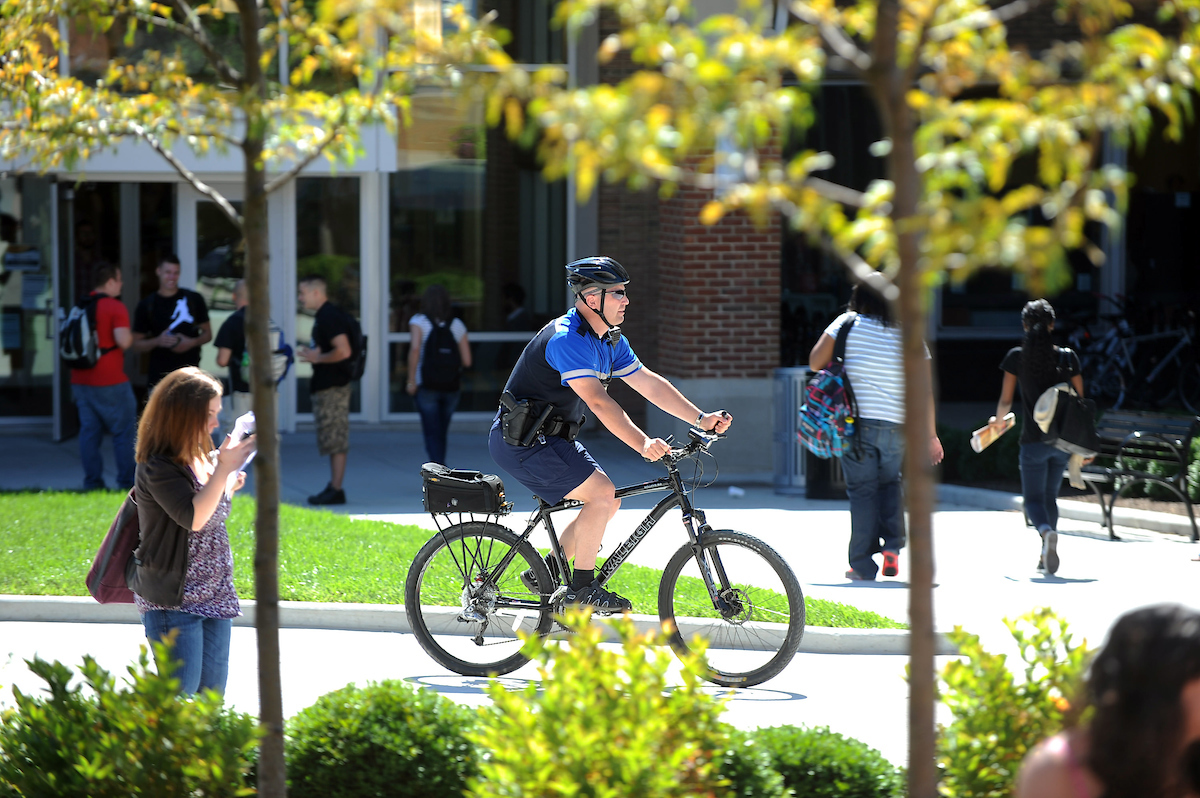When Kent State students are asked what they like most about Kent State, one of the most frequent responses is “It feels like home.” Home, to many of us, is a place where we feel comfortable, we feel like we belong and, most importantly, a place where we feel safe.

To help make sure our students, faculty, staff and visitors feel safe, and are safe, Kent State has a community of dedicated people, along with state-of-the-art special services committed to safety and security, on and around the Kent Campus.
As a residential campus, Kent State's Kent Campus is like a small town, with the same kinds of year-round, around-the-clock safety concerns. In a recent conversation, Dean Tondiglia, Kent State's director of public safety and chief of police, shared his insights on the ways the university works to keep everyone who lives on, or visits the Kent Campus safe.
1. To protect and serve
The şÚÁĎÍř Department of Public Safety, Police Services Division, is a full-time, 24/7 police department of 30 sworn officers, 11 dispatchers, three support staff members and two explosive detection canines.
The officers, dispatchers and staff of şÚÁĎÍř Police are dedicated to providing professional police services with a commitment to fairness, integrity and treating everyone with dignity, compassion and respect. The Police Services Division strives to foster and maintain a collaborative partnership with members of the university community and surrounding areas through multiple outreach programs and initiatives.
Officers patrol the campus and surrounding areas on foot, on bicycles and in police vehicles to enhance security and safety on campus.
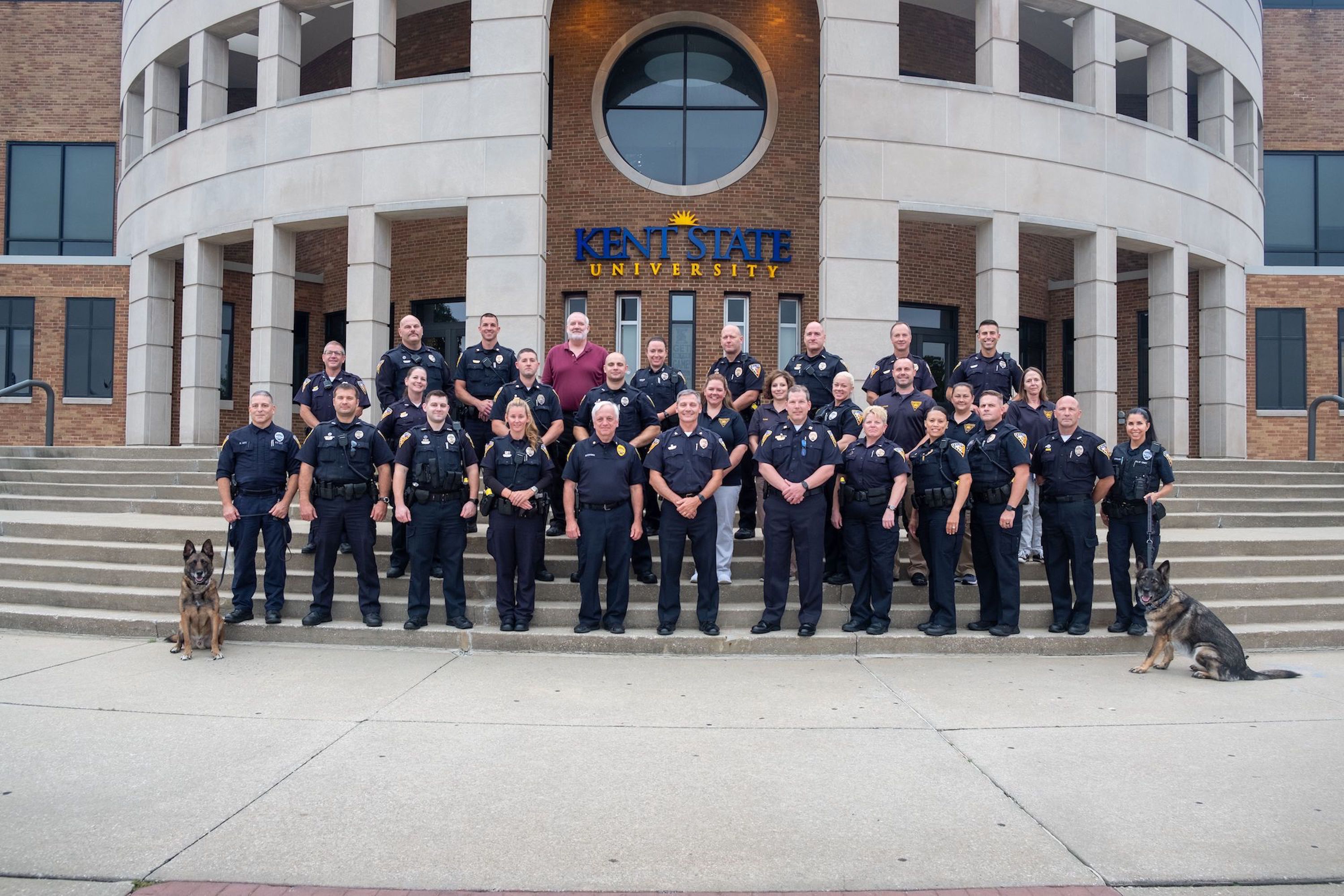
2. Valuable accreditation

şÚÁĎÍř Police Services is one of only three university police departments in Ohio to be accredited by the Commission for Accredited Law Enforcement Agencies (CALEA). şÚÁĎÍř Police Services was also the first university police department to gain this accreditation in 1991 and has maintained it every year since.
Chief Tondiglia is proud of this achievement and stressed that the CALEA accreditation process is voluntary and that the division undertakes the process to challenge itself and reinforce its commitment to providing the best service to the university and the community.
CALEA is a law enforcement credentialing authority commissioned by major law enforcement executive associations, including the International Association of Chiefs of Police, the National Organization of Black Law Enforcement Executives, the National Sheriffs' Association and the Police Executive Research Forum.
3. Canines on campus
şÚÁĎÍř Police has two explosive detection canine units on staff (Coco and Dexter). These animals provide explosive detection services to the university and the greater northeastern Ohio area. Tondiglia noted that very few police departments in Northeast Ohio have these valuable assets. Because of this, the K9 units are often called upon to aid other departments with crisis situations, special events, conventions, presidential visits and more.

4. Look for the blue light
There are more than 40 “blue light” emergency phones located near parking lots and sidewalks around campus. Pressing the button on the phone dials 911, immediately connecting the caller to the Kent State police 911 Communication Center.
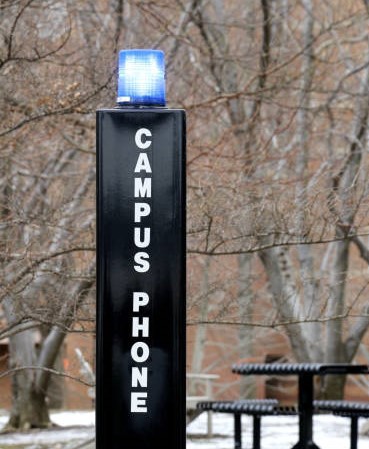
5. 911
Also, Kent State police services is designated as a 911 Public Safety Answering Point (PSAP). This means that all 911 calls from mobile phones and landlines on campus go directly to the Kent State 911 Communication Center. This allows for quicker response time and direct service from the şÚÁĎÍř Communication Center.
Few universities have this service, so their 911 calls go another jurisdiction's 911 center before being routed to their agency for service.
Being a 911 PSAP allows the Kent State community the ability to use the familiar and easy-to-remember 911 to connect directly to campus police services.

6. Continuous improvement
All Kent State police officers receive regular advanced and specialized training in a number of police disciplines to better equip them for situations they may encounter. The division also provides regularly scheduled training to the officers throughout the year to ensure they are up to date on current trends, tactics and changes in the law.
All patrol officers receive crisis intervention training. This specialized instruction helps officers learn how to approach and work with students and community members in crisis who may have a mental health condition.
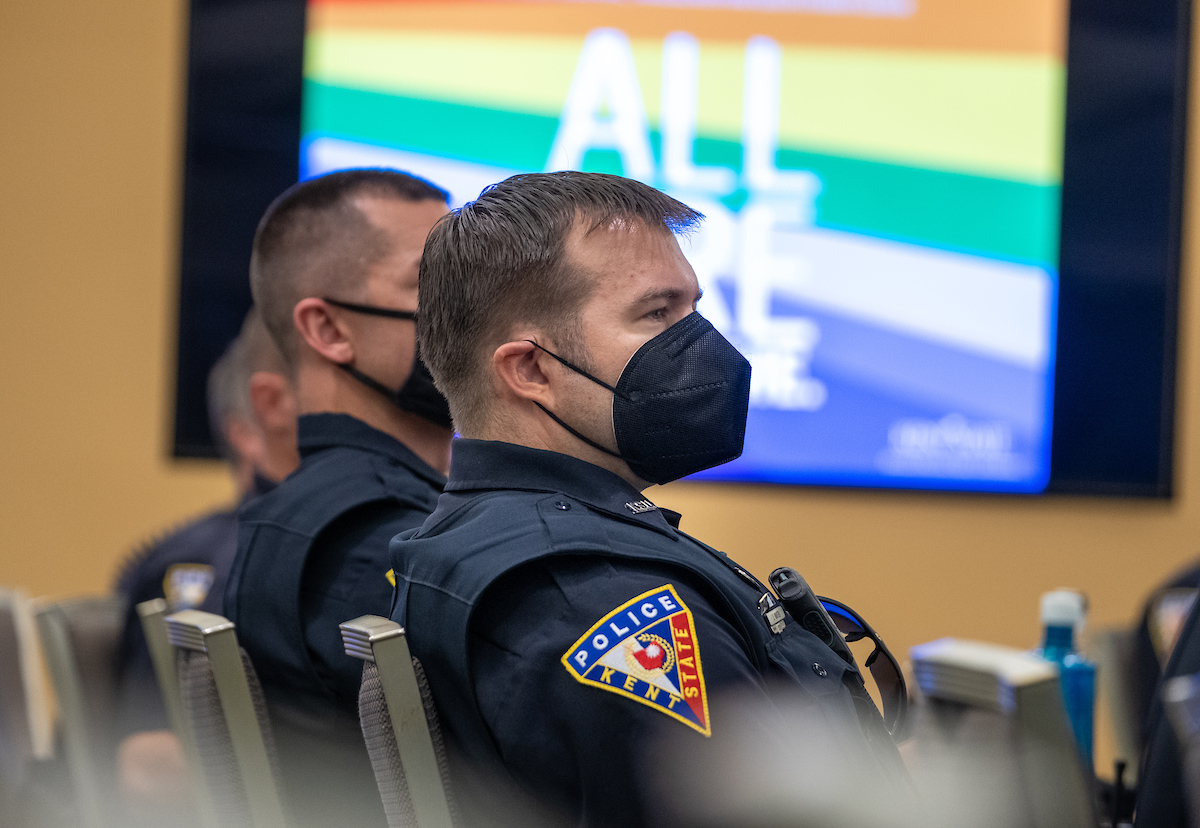
7. Training with simulated emergencies
The Kent State department of public safety regularly conducts tabletop and other scenario-based exercises to help prepare the university and other first responders on how to handle emergency situations that may arise.
Some of the exercises include full-scale, on-site simulated scenarios with role players and special simulation equipment. These exercises help train and prepare Kent State police officers and other first responders for university-wide emergency situations.

8. Kent State’s full-time emergency management coordinator 
Kent State's emergency management coordinator is a civilian employee within Kent State's Department of Public Safety. Emergency management is how an entity prepares for, responds to and recovers from a disaster. It can be a natural disaster like a tornado or severe thunderstorms, or man-made with an individual or a group of individuals causing the disaster.
Kent State's emergency management coordinator is Vince Marino. He oversees the preparedness of all campuses and locations within the university system.
"Having a person in this role is important to ensure the overall effectiveness of the emergency management function at Kent State, including preparing for and responding to emergency situations on our campuses," Tondiglia said.
9. Alerts, alerts, alerts
When there is an emergency at Kent State, the campus community receives information through several channels and outlets. The university works to help make sure that everyone receives vital information promptly.
Flash ALERT text messages
Students and employees can opt in to this service that delivers emergency messages directly to their mobile phones via text messages. You can sign up to receive Flash ALERTS .
Mass notification system
Speakers placed inside every campus building and outdoors in public areas as well as the speakers on every phone relay audio messages with alerts and instructions for severe weather and other emergencies.
Email, social media and web notifications
University departments coordinate to send email alerts and post important safety information on the university’s websites and social media channels.
Kent State police services maintains a daily crime and fire log summarizing crimes and residence hall fires reported for the last 60 days.
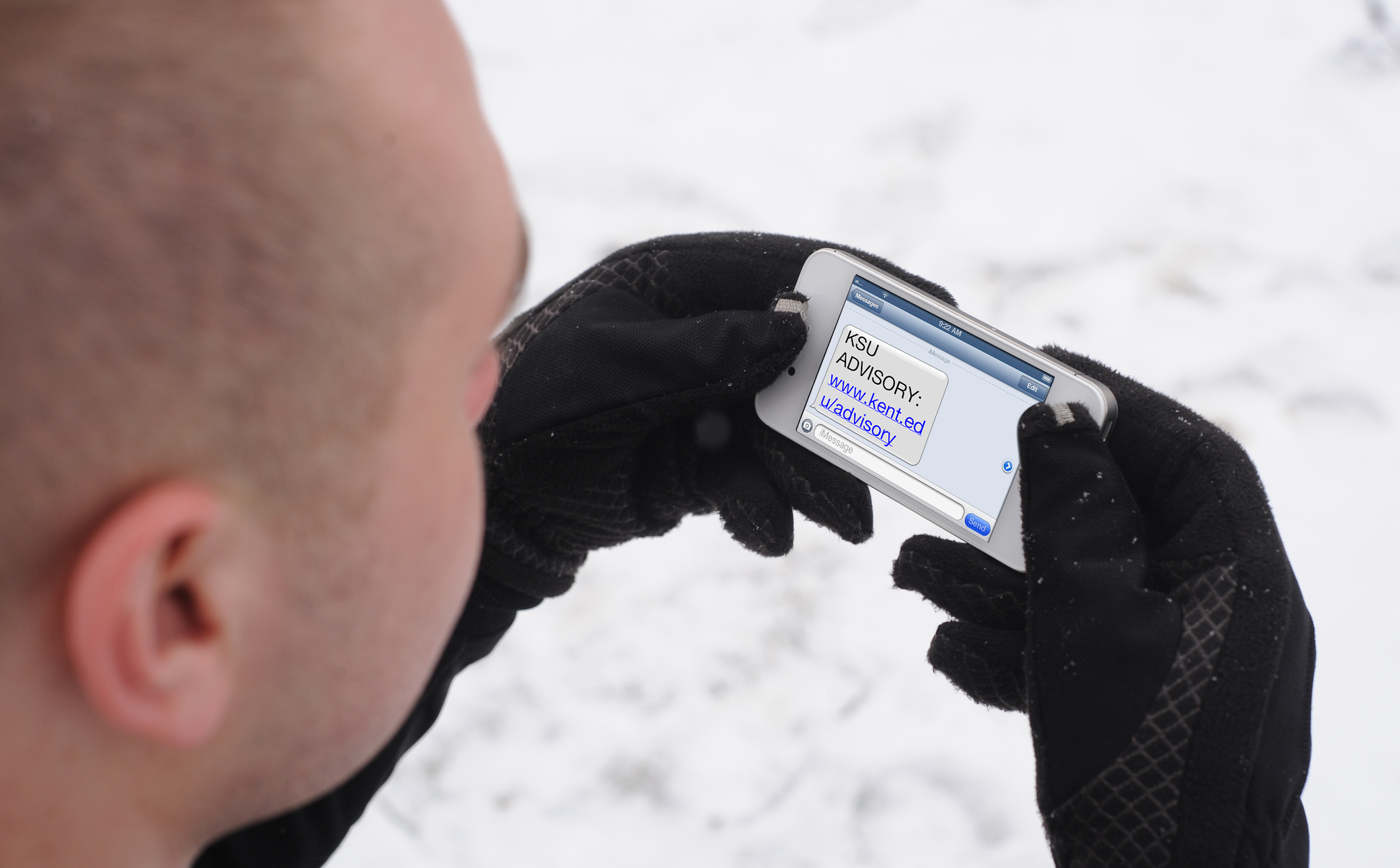
10. Connecting with the community
Kent State police services uses many community outreach initiatives to help to build relationships within the community.
These include different programs, events and activities conducted thoroughout the year. One prominent program is the Community Oriented Policing (COP) program, in which officers are assigned to residence halls, academic and non-academic buildings, centers and other areas of engagement on campus. These officers connect with residence hall directors and resident advisors, building curators, custodial staff and other key people on campus and work to develop a real understanding about their daily operations and the challenges they face. This information provides better insight into what type of public safety support is needed in the community.
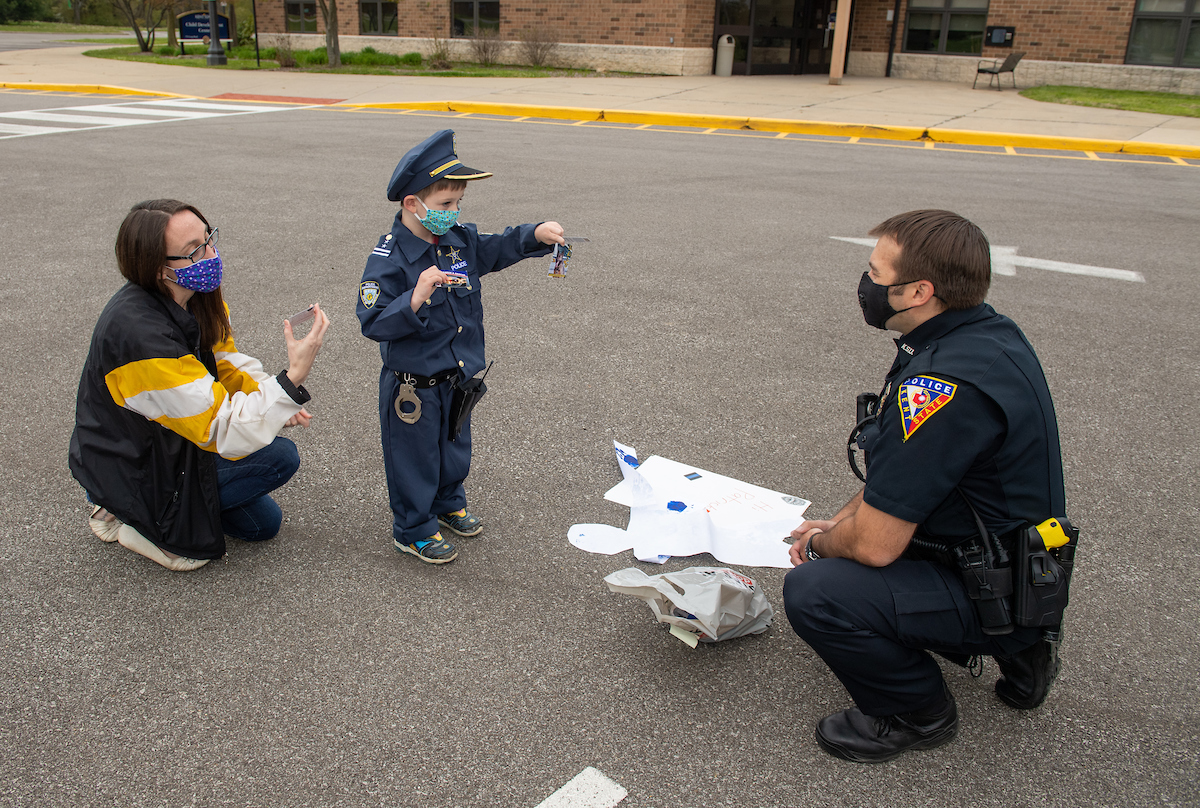
11. Bridging language barriers
Kent State police services subscribes to a translation service that public safety staff can quickly contact by phone to help them communicate with people who speak a language other than their own.
12. Student-led safety services
In addition to the safety services Tondiglia outlined, there is also Kent State's Office of Safety and Security, within University Housing.
It is a student-led service that has been helping keep students safe on campus since 1973. The office has been nationally recognized for excellence and for its unique status as the only program of its kind staffed by student leaders.
Student safety assistants receive 100 hours of training, learning fire prevention, emergency procedures, conflict resolution, de-escalation, strategies to promote mental wellness and more.
The office maintains a staff of 64 student safety assistants who complete rounds in every residence hall during the evening hours. During these rounds, they inspect fire safety equipment, enforce policies, resolve conflicts and build relationships with student residents, to answer any questions or help with any issues they may have.
Safety assistants communicate with the Kent State police department, University Housing staff and other key partners on campus.
The most widely used service provided by the Office of Safety and Security is the escort service. Students can contact the office to request an escort to or from any location on campus during the office's hours of operation, which are 4 p.m to 4 a.m. during fall and spring semesters and 5 p.m. to midnight during break periods.

Safety is foundational
Everyone at Kent State is committed to helping students succeed, and providing a safe, secure environment in which to live and learn is an essential part of that. To find out more about safety on campus, visit /campus-safety.

